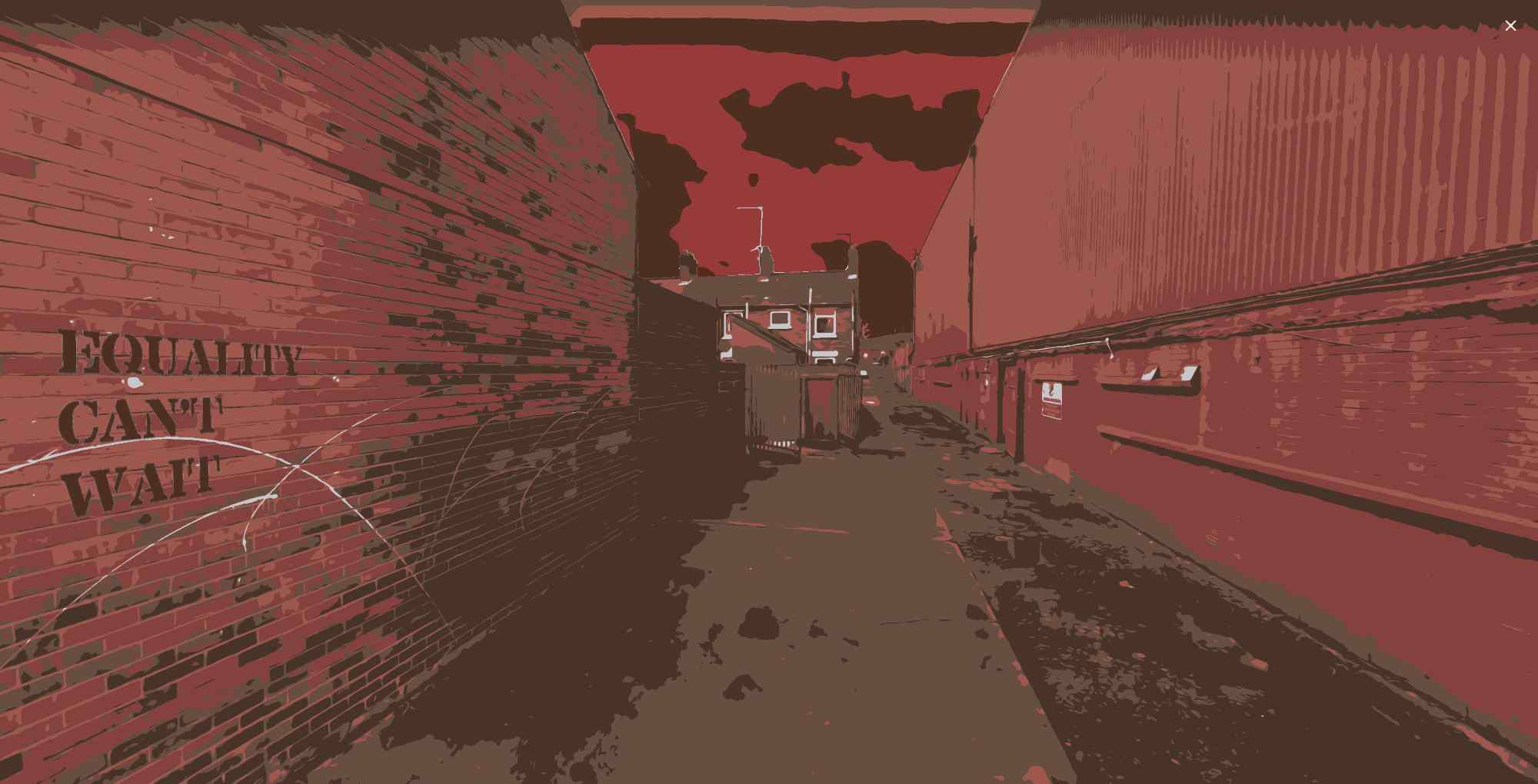
Policy Watch
An eye on policy changes in Ireland, the UK and beyond
NI Homelessness and Social Housing Need | England's 'Eviction Ban' Ending and the Situation of Private Tenants in NI | Widespread Condemnation of Punitive Home Office Policies
NI Homelessness and Social Housing Need
In an update on NI homelessness, the Housing Executive reported providing emergency accommodation to over 7,200 people between April and December 2020, an increase of 150% on the same period in the previous year. It attributed the rise in need for hostels and other shelter in part to strain on household relationships during lockdown. The Department for Communities announced a further £9m for 2021/22, to fund the Housing Executive’s Covid Reset Plan ‘The Way Home - Homelessness Response to Covid-19’, bringing the budget for homelessness programming for the year to £46m.
On social housing, the Belfast Telegraph reported that 140 people died last year while waiting for a home on the Housing Executive’s list of applicants; the total over the last five years is nearly 1,000. The Detail published ongoing scrutiny of duty bearer decision-making around the Mackies site in West Belfast, including the failure to use public land to address the social housing crisis. "In the south, Sinn Féin are championing policies which maximise sustainable housing developments on available land as a priority in addressing the housing crisis,” said PPR Director, Dessie Donnelly. “We need these approaches at Mackie’s to address the housing crisis on this side of the border.”
In response to a request from Colm Gildernew MLA for an update on the measures her Department is taking to increase social housing provision, Communities Minister Hargey wrote, “housing stress levels here are totally unacceptable. Our housing system is in need of transformative change,” and spoke about her department’s housing transformation plan and £26m funding increase over last year’s social housing budget. She told the Housing Council – a statutory advisory body composed of local council members – that she was committed to a co-design process in reforming the Housing Executive. She said her staff were “working proactively to prioritise actions to improve our response to homelessness with a continued focus on prevention”. The Belfast Telegraph reported that that the Department for Communities had missed its target for rural social homes by more than 50% last year.
Elsewhere…
In the Republic, Social Justice Ireland reported that the number of households seeking social housing in Ireland increased by 33% since 2016. It called on the government to double the number of social homes by 2030 and urged it to set a target of 20% of all new build housing to be social.
England’s Local Government Association reported that since 2010/11, planning permission has been issued for 1.1m homes that have not yet been built, compounding the housing crisis. It called for government to enable councils to “kickstart a social housebuilding programme of 100,000 homes a year”.
England’s ‘Eviction Ban’ Ending and the Situation of Private Tenants in NI
In England the government’s ‘eviction ban’, already weakened to cover bailiff-enforced evictions only, will not be extended once it ends later this month. Moreover, the eviction notice period landlords must give tenants will reportedly be reduced from the six months period mandated during the pandemic to just four months from 1 June, and then again to only one month from end September. Numerous sources sounded alarm bells about the numbers of tenants at risk and repeatedly urged the government to avoid an eviction crisis by putting measures in place to help people meet their rent arrears.
When asked on the NI Assembly floor about plans for legislation to protect private tenants, Communities Minister Deirdre Hargey said that a proposal for “legislation to build in extra protections for those living in the private rented sector” was currently with the Executive. The next step would be the introduction of a draft bill. The requirement for a 12-week ‘notice to quit’ runs to 30 September 2021.
Widespread Condemnation of Punitive Home Office Policies
The Guardian published a piece on the “disturbing” and “paranoid” culture and direction of the Home Office, based on 40 interviews with staff, former home secretaries and ministers, judges, lawyers and campaigners. Meanwhile there was widespread condemnation of a numerous Home Office policies.
A dawn raid by the Home Office seeking to detain and deport two men in Glasgow on Eid was foiled by hundreds of local residents, who blocked the van in which the men had been placed from leaving. The First Minister condemned the raid, and the Home Office eventually released them.
The Law Society wrote that the Home Office’s proposed New Plan for Immigration poses a serious threat to the rule of law and “make a mockery of British fair play”, while the Children’s Law Centre NI highlighted the way the policy would "trample on the rights of some of the most vulnerable children in Northern Ireland. A joint statement from the Chartered Institute of Housing, Homeless Link, Metropolitan Thames Valley and the No Accommodation Network (NACCOM) said the proposals will create “severe hardship” for asylum seekers and would result in “a more dysfunctional system”.
No European nations have signed up to the third country returns part of the New Plan, while a concerned UNHCR offered to design lawful reforms to the UK asylum system but has so far been rebuffed. Echoing earlier criticism of Home Office rhetoric, international critics said that Home Secretary and her staff continue to encourage the perception of an immigration ‘crisis’ in order to justify an ideologically-motivated move to a highly restrictive immigration system post-Brexit.
The UK’s independent anti-slavery commissioner Dame Sara Thornton said the Home Office’s New Plan for Immigration would make it harder to identify and reach victims of modern slavery and warned, “There is grave danger of viewing victims of modern slavery through an immigration lens and ignoring the trauma and exploitation they have suffered as victims”.
The Guardian reported that the Home Office, under the pretence of Covid-19 measures and in violation of international standards, detained hundreds of people – including survivors of torture, modern slavery and trafficking – in near solitary confinement in UK prisons over the past year.
The Scottish Refugee Council reported FOI response data showing that between April 2017 and December 2020, just 5% of recognised victims of trafficking from outside the EEA were granted discretionary leave to remain (260 of 5,088 people). MPs just approved a change to statute allowing the Home Office to raise the standard of proof trafficking victims are required to present to show that they should not be detained to match the standard demanded of other immigrants – so removing the recognition of their vulnerability and the potential harm caused to them by being detained.
NI Justice Minister Naomi Long, speaking ahead of the upcoming launch of her department’s Modern Slavery and Human Trafficking Strategy for 2021/22, said that the Public Prosecution Service is consulting on changes to its policy for prosecuting these cases, 128 of which were identified here last year.
A coalition of 60 organisations including Crisis, Shelter, Depaul UK, Simon Community Scotland, NACCOM and the Scottish Federation of Housing Associations issued a statement of concern at recent Home Office instructions for implementing new rules that make rough sleeping grounds for refusing or cancelling a person’s permission to remain in the UK. The organisations said “everyone in our society should have a safe place to live and no one should be punished for experiencing homelessness. This policy undermines this principle… [and] puts people at risk of exploitative work, accommodation, and potentially modern slavery”.
A judge ordered that evictions from asylum accommodation should cease until after consideration of four linked cases has ended. When an official admitted in court that the Home Office did not consider whether it had a legal basis for its change of policy, the judge called the admission “extraordinary” and said that the way the Home Secretary has acted was “a singularly serious position for her to find herself in” and “unfortunate in the extreme”. Public Health England’s view was that no one “should be enabled to become homeless from a public health perspective” during the pandemic.
In NI Assembly questions, the Health Minister reported 761 asylum seekers had been offered Covid-19 vaccinations on 18 and 19 May. Karen Mullan MLA asked the Minister for Communities her assessment on the standard of accommodation for refugees and asylum seekers in North and South Belfast; whether she has had any correspondence with the MEARS housing management group in Belfast; and whether her Department, or other bodies, are able to inspect and review the accommodation standards currently being provided by MEARS for refugees and asylum seekers in the Belfast area.
